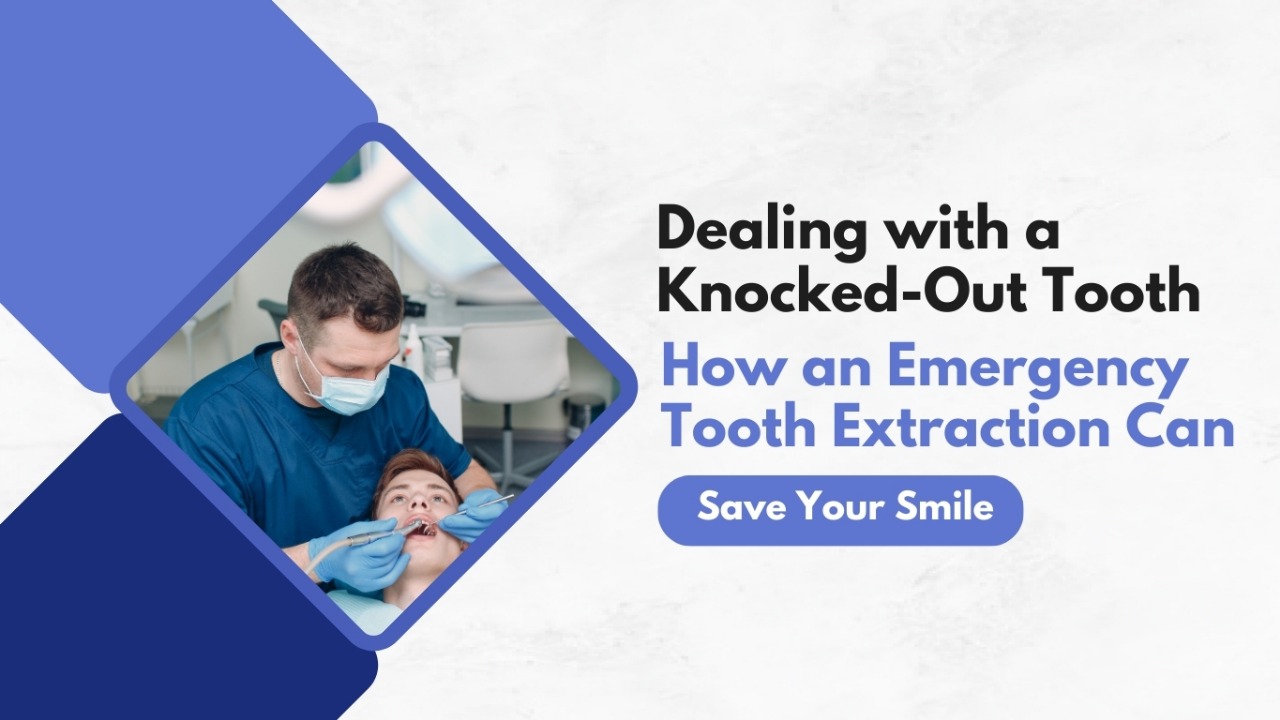Accidents happen, and sometimes they happen to our smiles. One of the most alarming dental emergencies is having a tooth knocked out. Whether from a sports injury, a fall, or an unexpected accident, losing a tooth can be painful and distressing. However, staying calm and taking quick action is key to a successful recovery.
If you experience this, Springvale Dental Clinic, Carrum Downs Dental Group, and Bayswater Dentist are here to help. With expert teams, state-of-the-art equipment, and flexible payment options like Afterpay, Humm, Denticare, TLC and more, we ensure your treatment is as stress-free as possible. As a HCF,CBHS, West Fund, SMILE.COM.AU and NIB Preferred Provider, we also accept most dental insurances and public dental vouchers such as CDBS, VEDS, and VGDS. Now, let’s look at how to handle a knocked-out tooth.
What Happens When a Tooth Is Knocked Out?
When a tooth is knocked out, it may be fully or partially displaced. A fully knocked-out tooth is called an avulsed tooth. The damage depends on the force and angle of impact. Regardless of severity, a knocked-out tooth is a dental emergency. Seeking prompt treatment can determine whether the tooth can be saved or if an emergency tooth extraction is necessary.
When Is an Emergency Tooth Extraction Necessary?
At Springvale Dental Clinic, Carrum Downs Dental Group, and Bayswater Dentist our team can assess your situation quickly. If the tooth can’t be re-implanted, an emergency extraction might be necessary to protect your oral health.
Common reasons for an emergency extraction include:
- Severe Damage: If the tooth is broken beyond repair.
- Infection: A knocked-out tooth can introduce bacteria, risking infection.
- Misalignment: If the tooth affects the alignment of surrounding teeth.
- Risk of Further Injury: If the tooth could cause additional damage.
What to Expect During an Emergency Tooth Extraction
Should an emergency extraction be required, our team will ensure the procedure is as comfortable as possible. Here’s what you can expect:
- Local Anesthesia: Numbing the area to reduce discomfort, with sedation options available if needed.
- Tooth Removal: The dentist will carefully remove the tooth, sometimes breaking it into smaller pieces for easier extraction.
- Aftercare: Detailed instructions on managing pain, preventing infection, and healing will be provided. Pain relievers or antibiotics may be prescribed.
Managing Pain and Recovery After a Tooth Extraction
Here’s how to help with recovery:
- Follow Aftercare Instructions: Keep the area clean and follow the dentist’s advice to avoid complications.
- Ice Packs: Apply ice to reduce swelling within the first 24 hours.
- Pain Relief: Over-the-counter medications like ibuprofen can help manage discomfort.
- Dietary Adjustments: Stick to soft foods and avoid chewing near the extraction site.
- Monitor for Complications: Watch for signs of infection such as increased swelling or persistent pain.
Replacing the Knocked-Out Tooth
If the tooth needs to be replaced, options include:
- Dental Implants: Permanent tooth replacements for a natural look and feel.
- Bridges or Dentures: Alternatives if implants aren’t suitable.
Our clinics provide professional guidance on which option is best for you.
Conclusion
Dealing with a knocked-out tooth can be stressful, but Springvale Dental Clinic, Carrum Downs Dental Group, and Bayswater Dentist are here for you. Whether you need re-implantation or an emergency tooth extraction, our team will ensure the best outcome. In an emergency, time is crucial—contact us immediately for prompt care. With quick action, you’ll be back to smiling confidently soon!

